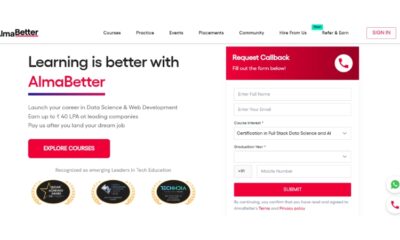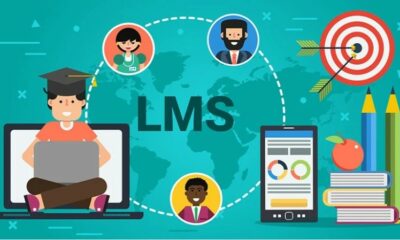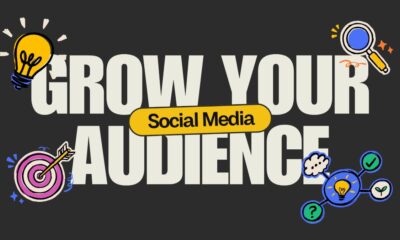Education
A Look at the Rise of Coding Education and Its Benefits

The convergence of technology and education has emerged as a pivotal area with revolutionary potential in a society where technological innovations influence almost every aspect of everyday existence. The way that information is taught and gained is being revolutionized by technology, from smartphones to smart classrooms.
Personalized Learning: Tailoring Education to Individual Needs
Using technology, personalized learning provides a customized educational experience for each student based on their requirements. To guarantee that every learner is given the appropriate amount of challenge, adaptive learning systems evaluate each student’s performance and modify the material type and degree of difficulty. This personalization speeds up learning and closes achievement gaps for both advanced and struggling pupils. Moreover, by matching course material to students’ interests, customized learning promotes engagement. For instance, math platforms modify problem sets to fit the learner’s ability level, while language learning applications employ gamification to make vocabulary acquisition fun.
Enhancing Teacher Effectiveness and Efficiency
Technology helps teachers be more successful by giving them access to technologies that improve teaching strategies and expedite administrative work. With learning management systems (LMS) like Google Classroom and Blackboard, teachers can manage assignments, monitor student development, and provide immediate feedback on a single platform. Teachers can concentrate more on teaching and less on paperwork thanks to this integration. Technology also provides educators with creative methods to interact with pupils and provide material. Teachers can deliver material in engaging and dynamic ways with the use of interactive whiteboards, virtual reality experiences, and instructional software.
Accelerated Labs: Bridging Theory and Practice
Accelerated labs, which use technology to combine theoretical knowledge with real-world applications, are a breakthrough in STEM teaching. These laboratories mimic intricate scientific research and engineering tasks using virtual and augmented reality. Students can enhance their practical experience without the dangers by doing experiments that would be too expensive, risky, or time-consuming in a typical lab environment. For example, biology students can study intricate 3D representations of human anatomy, while chemistry students can experiment safely with volatile reactions using virtual laboratories. By enabling students to see and engage with scientific processes in real-time, these experiences enhance knowledge.
Expanding Access to Education
Technology is essential for increasing educational access and removing social and geographic obstacles. Students who can normally be excluded owing to geography, socioeconomic restraints, or physical disability can now take advantage of learning possibilities via online courses and digital tools. Anyone with an internet connection can access top-notch educational information via platforms like Khan Academy, Coursera, and edX. Technology also helps inclusive education by giving special needs students access to resources. Screen readers, speech recognition software, and adaptable learning interfaces are examples of assistive technology that make sure every student can take part completely in their education.
Preparing Students for the Digital Economy
Giving pupils the necessary skills is essential as the global economy moves toward digitalization. By ensuring that students are fluent in new media and skilled with digital tools, technology integration in education equips them with a wide variety of job options. Essential elements of a curriculum designed for the future include exposure to diverse software applications, coding training, and digital literacy initiatives. Incorporating tools like Jupyter Python into coding education can provide students with practical experience in data analysis and scientific computing. Since digital marketing involves a broad range of skills that are relevant across sectors, it is especially important to incorporate it into education. Students gain knowledge of data analytics, social media tactics, content production, and search engine optimization (SEO).
Global Connectivity: Building a Collaborative Learning Environment
Technology-enabled global connection turns classrooms into networked centers of learning. Students can access a global knowledge library, interact with peers throughout the globe, and participate in cross-cultural encounters. Collaborative platforms, online discussion boards, and video conferencing are examples of tools that facilitate real-time communication and cooperation across geographic borders. Students from many nations can collaborate on a class project on climate change, for example, and exchange ideas and solutions based on their unique local settings. In addition to enhancing education, this international engagement promotes a feeling of global citizenship. Pupils gain the capacity to collaborate in different teams, be empathetic, and understand other cultures—all crucial abilities in today’s globalized society.
Conclusion
The landscape of education is changing as a result of the incorporation of technology, becoming more accessible, efficient, and individualized. By adopting these innovations, educators can design dynamic, inclusive, and productive learning environments that provide students with the information and abilities they need to prosper in a rapidly changing world.
-

 Gadget4 weeks ago
Gadget4 weeks agoAfter Grand Success on BLDC Ceiling Fan, Eff4 Is Launching Smart Bulb
-

 Festivals & Events4 weeks ago
Festivals & Events4 weeks agoGoogle Celebrates Cherry Blossom Season with Animated Doodle
-

 Business3 weeks ago
Business3 weeks agoPrakash and Kamal Hinduja: Driving Social and Environmental Change
-
Education3 weeks ago
Fred DuVal: University Leadership as a Critical Resource for Climate Change Research and Life-Saving Solutions
-

 Health3 weeks ago
Health3 weeks agoThe Hinduja Brothers Commitment to Global Health: Empowering Communities Across Borders
-

 Cryptocurrency3 weeks ago
Cryptocurrency3 weeks agoDesigned For The Masses: How Akasha (AK1111) Is Unlocking Crypto For The Next Billion Users
-

 Cryptocurrency3 weeks ago
Cryptocurrency3 weeks agoNexaglobal & Future World Token (FWT): Could This Be the Next Big Crypto Investment of 2025?
-

 Sports4 weeks ago
Sports4 weeks agoWomen’s NCAA Tournament 2025 Sweet 16: Full Schedule, Fixtures, Teams, Bracket, and How to Watch March Madness Basketball Match Live



















